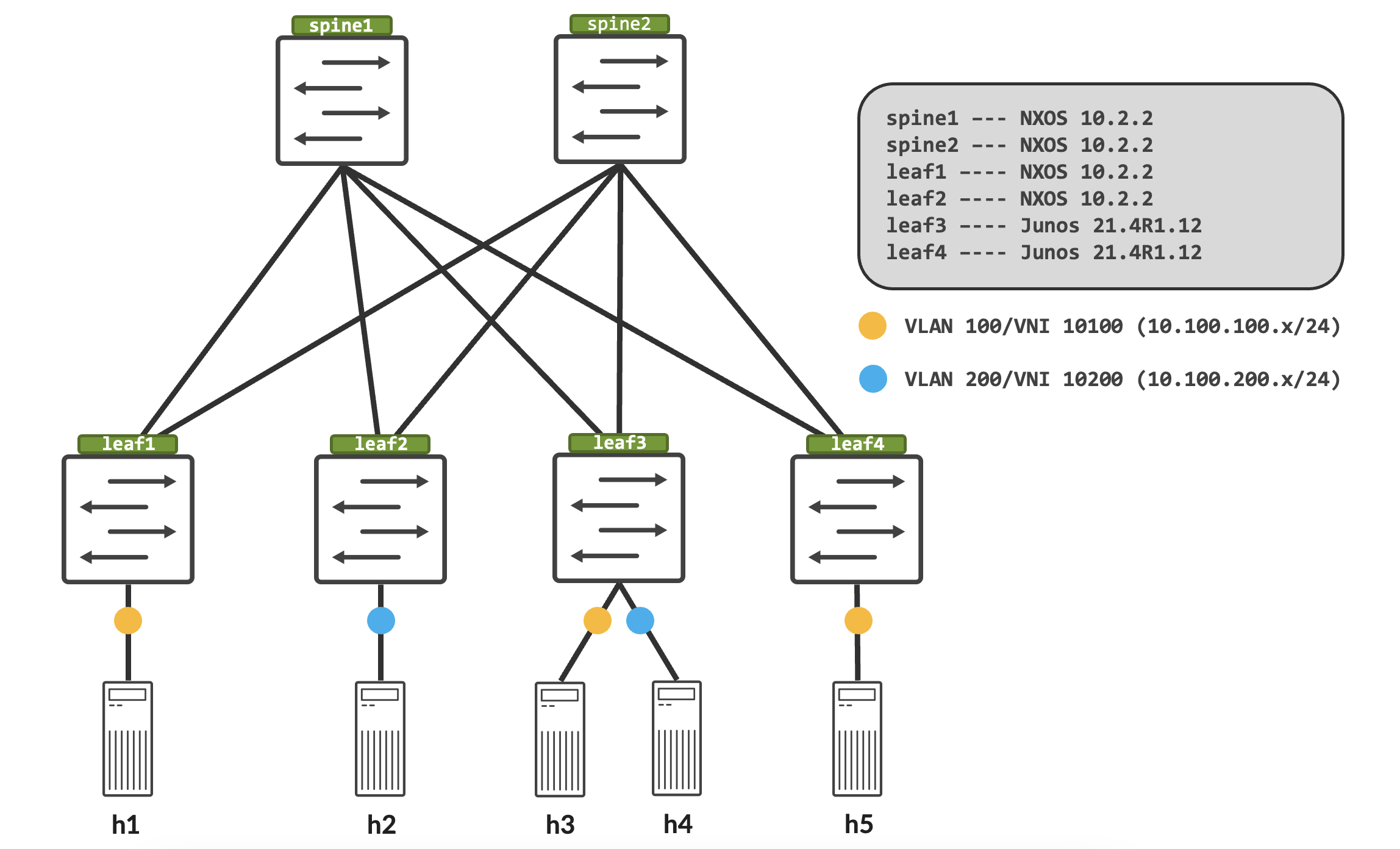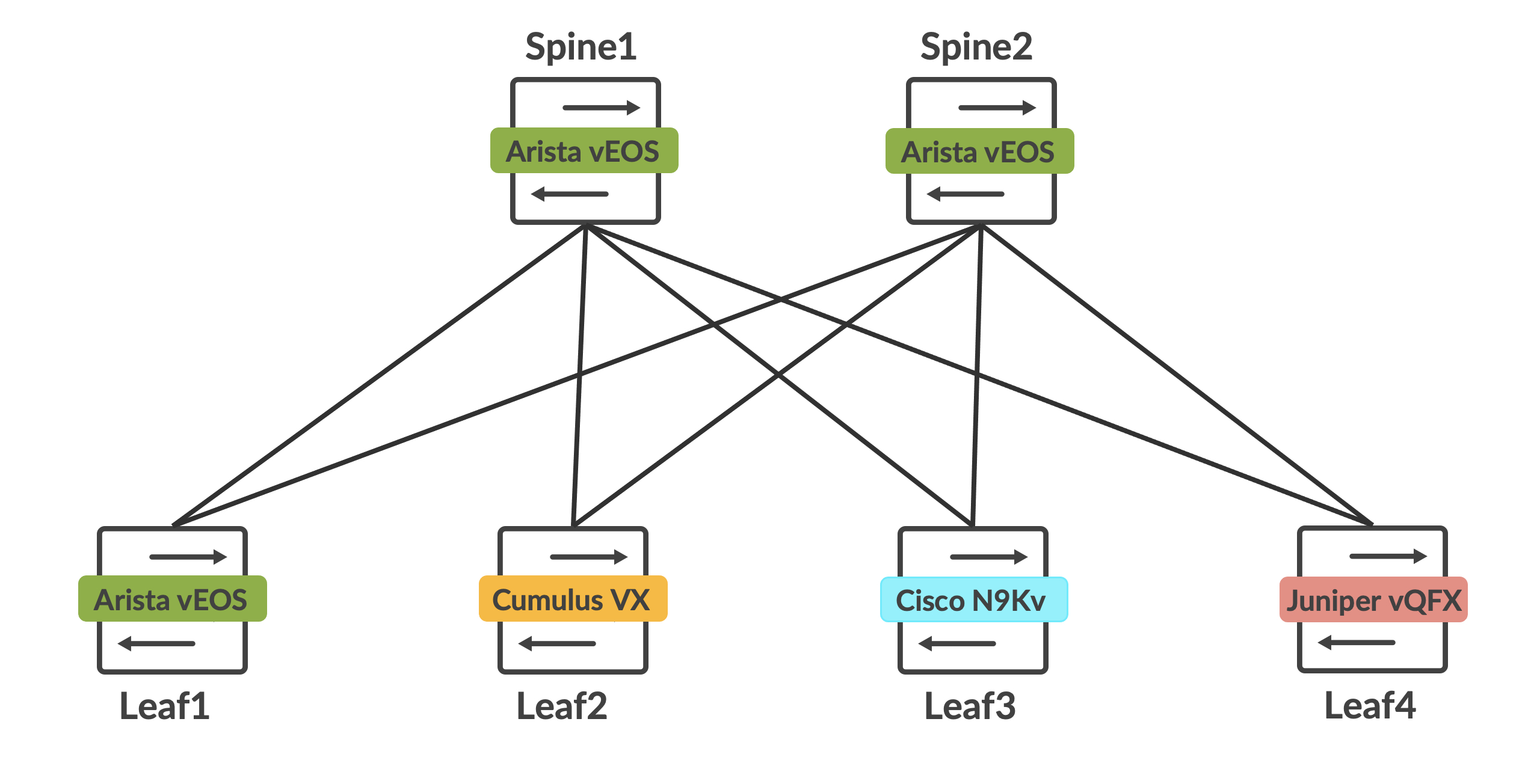Asymmetric routing with SR Linux in EVPN VXLAN fabrics
This post dives deeper into the asymmetric routing model on SR Linux. The topology in use is a 3-stage Clos fabric with BGP EVPN and VXLAN, with server s1 single-homed to leaf1, s2 dual-homed to leaf2 and leaf3 and s3 single-homed to leaf4. Hosts s1 and s2 are in the same subnet, 172.16.10.0/24 while s3 is in a different subnet, 172.16.20.0/24. Thus, this post demonstrates Layer 2 extension over a routed fabric as well as how Layer 3 services are deployed over the same fabric, with an asymmetric routing model.
The physical topology is shown below:



